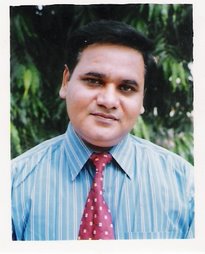I saw Amway diamonds dancing on the stage and telling their success stories. $ 1000 a day sitting home! Residual income, future security, royalty for generations – who would refuse it.
As far as the business model looks from above, it is a fair business comprising a network of consumers benefiting each other. But once you are inside, things begin to complicate.
I have been an Amway distributor for three years. I attended all seminars and purchased over 500 cassette tapes and books; followed everything what up line leaders had suggested.
Result – I lost all my deposits and current earnings of job over these three years; a sum total of $ 7500 ( Rs 3 lac). Lost many friends and relatives and of course precious hours that I could have devoted to reading, resting and being with family.
I came to know the major earnings of Amway come from annual renewal fees and forced distributor enrollment through personal enforcement and persuasive presentations. It was a deep cut. The only thing I gained is experience in making calls and visiting people everyday as undesirable guest.
Those who are new to MLM business, I won’t discourage them. You may make fortunes if you can sacrifice everything else to earn money. But take this advice from me- never invest too much in the enterprise.
Saturday, June 9, 2007
Sunday, June 3, 2007
Jamnalal Bajaj, the Father
Late Sh Jamna Lal Bajaj was accepted by Mahatma Gandhi as his fifth son. Like most marwari seths of his time, he was thoroughly cultivated in Indian value system. Other than routine business, he found time to make marital matches and also for social gatherings. Jamna Lal Bajaj frequently visited Mahatma Gandhi’s ashram for his advice. He liberally donated money for Indian Freedom movement.
Kamal Nayan Bajaj was his eldest son, most uninterested in studies. This worried Jamna Lal sometimes because son’s failure in the exam might cause a dent to his personal reputation. What impressed me most about this man, that he was a very wise father.
He did not force Kamal to study. Rather he attached lot of value to his son’s independent opinion, often contrary to his own. Kamal was spendthrift and believed in material luxuries. Sometimes he refused to accompany the family to Mahatma Gandhi’s ashram. Father still honoured his opinion.
Such type of handling made all the difference. Indian families in his times had strong paternal control. A disagreement from father was almost impossible to think. Kamal became most enterprising of all his sons.
This is a good lesson to all the fathers who try to impose their ideas on children. This practice invariably backfires. You end up loosing your child. Children have their own ideas and if any help is possible, that is only through trying to understand their point of view. I know many children who hate their fathers for the raw treatment given to them in their childhood.
We don’t need dye cast kids. We must grow responsible citizens guarding their identity.
src="http://pagead2.googlesyndication.com/pagead/show_ads.js">
Kamal Nayan Bajaj was his eldest son, most uninterested in studies. This worried Jamna Lal sometimes because son’s failure in the exam might cause a dent to his personal reputation. What impressed me most about this man, that he was a very wise father.
He did not force Kamal to study. Rather he attached lot of value to his son’s independent opinion, often contrary to his own. Kamal was spendthrift and believed in material luxuries. Sometimes he refused to accompany the family to Mahatma Gandhi’s ashram. Father still honoured his opinion.
Such type of handling made all the difference. Indian families in his times had strong paternal control. A disagreement from father was almost impossible to think. Kamal became most enterprising of all his sons.
This is a good lesson to all the fathers who try to impose their ideas on children. This practice invariably backfires. You end up loosing your child. Children have their own ideas and if any help is possible, that is only through trying to understand their point of view. I know many children who hate their fathers for the raw treatment given to them in their childhood.
We don’t need dye cast kids. We must grow responsible citizens guarding their identity.
src="http://pagead2.googlesyndication.com/pagead/show_ads.js">
